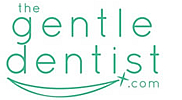Mouth Breathing and its effect on your body
I was sleeping the day after Thanksgiving and at 3:00 am our 5 year old son Matthew woke me up and said he couldn’t sleep because he couldn’t breathe through his nose. I dragged myself out of bed and used my mother’s old remedy which was to put Vick’s vapor rub on his chest and some under his nose. This seemed to work for him quite well except now I was awake. At 3:10 am I started to think about the oral effects I have observed from chronic allergies and “stuffed noses”. This seemed to be a relevant topic that I haven’t addressed in the past. When researching this topic, I became aware of all the benefits of normal breathing through the nose. Of course mouth breathing can lead to the snoring and sleep apnea. If interested, you can visit our website information blog at www.TheGentleDentist/blog/ and type in snoring. This will lead you to past articles on this topic.
Mouth breathing:
- Can increase asthma, high blood pressure, heart disease and other medical problems
- Reduces the levels of oxygen exchange in the blood/lung interface. The lungs extract oxygen from the air we breathe primarily on the exhale. Because the nostrils are smaller then the mouth, air exhaled through the nose creates back pressure when one exhales. It slows the air escape so the lungs have more time to extract oxygen from them.
- During sleep, it predisposes one to loud snoring and irregular breathing and can lead to a serious condition called Sleep Apnea and heart conditions.
Nose Breathing:
- Proper nose breathing reduces high blood pressure or hypertension and stress for most people. Kind of like a speed control (governor) on a car engine.
- The nostrils and sinuses filter and warm the air going into the lungs. The mouth breather bypasses this.
- Maintaining a keen sense of smell is very important for enjoying life and for safety and social acceptance. There are receptors in the nose, known as olfactory bulbs, are direct extensions of a part of the brain known as the hypothalamus. This extension regulates the heartbeat, blood pressure, thirst, appetite, and of course, the cycles of sleeping a waking. The hypothalamus is also responsible for generating chemicals that influence memory and emotion.
- Lessening of the common cold is another good reason for nose breathing. The mucous (white blood cells that kill germs) membrane lining the nose extends all the way from the inner linings of the nostrils down the trachea to the bronchi the directly enters the lungs. Germs get caught and die in the mucous.
Long term mouth breathers experience difficulty in swallowing pills, increased gagging response, increased mucous production and other difficulties.
Mouth breathers do not adjust the way they swallow as an infant. Typically infants project their tongues out to swallow and transition at around 8 months old so that their tongue is positioned along the top of their palate when swallowing. Pacifiers and thumb sucking also affects the tongue position during the developmental years. If they aren’t removed early enough the tongue continues to push out beyond the front teeth preventing normal jaw and teeth development. The relationship of the upper and lower teeth is also affected since they have to accommodate the tongue. I have seen in adult patients the affects of this and it is almost impossible to change the jaws without surgery. They usually have an open bite on their front teeth so that when they bite together the front top teeth don’t overlap the lower front teeth. This is not cosmetically appealing and it has negative effects on the health of the jaw joint.
Allergies also are responsible for the mouth breathing tendencies. The pharynx (back of throat) swells blocking off the nasal passage preventing smooth airflow through the nose. It is important to determine what children are allergic to as soon as possible so that the destructive forces of mouth breathing are minimized.
As an adult it is best to retrain yourself to nose breathe during the day. There are devices you can put in your mouth at night to retrain your tongue and help with nose breathing. In fact, I had a patient the other day who was having a very difficult time breathing. His CPAP breathing machine wasn’t functioning properly and I had him a Breathe Rite Strip to enlarge his nasal passage. He was shocked at the difference he felt and the ease in which he could breathe.
Our human bodies have been designed so intricately that the smallest change in our function can effect so many other facets of how we function and our overall health. If you have any questions please call me at (586)247-3500 or email me at DrAntolak@TheGentleDentist.com
Dr. Antolak treats his dental patients in a relaxed, friendly atmosphere where you are treated like a guest in the home. He specializes in cosmetic dentistry, implant dentistry and general dentistry using sedation dentistry if necessary for his high fear patients. He has been treating patients for the past 21 years.
As a reminder: The thermostats are being turned up and it is a good idea to have a humidifier in you room where you sleep since this significantly helps with dry mouth, sore throats, and adds to the efficiency of heating your home. I was reminded of this at a recent visit to a nursing home and recommended that a humidifier would help increase the comfort of sleeping for the patient.
Mouth Breathing and its effect on your body
